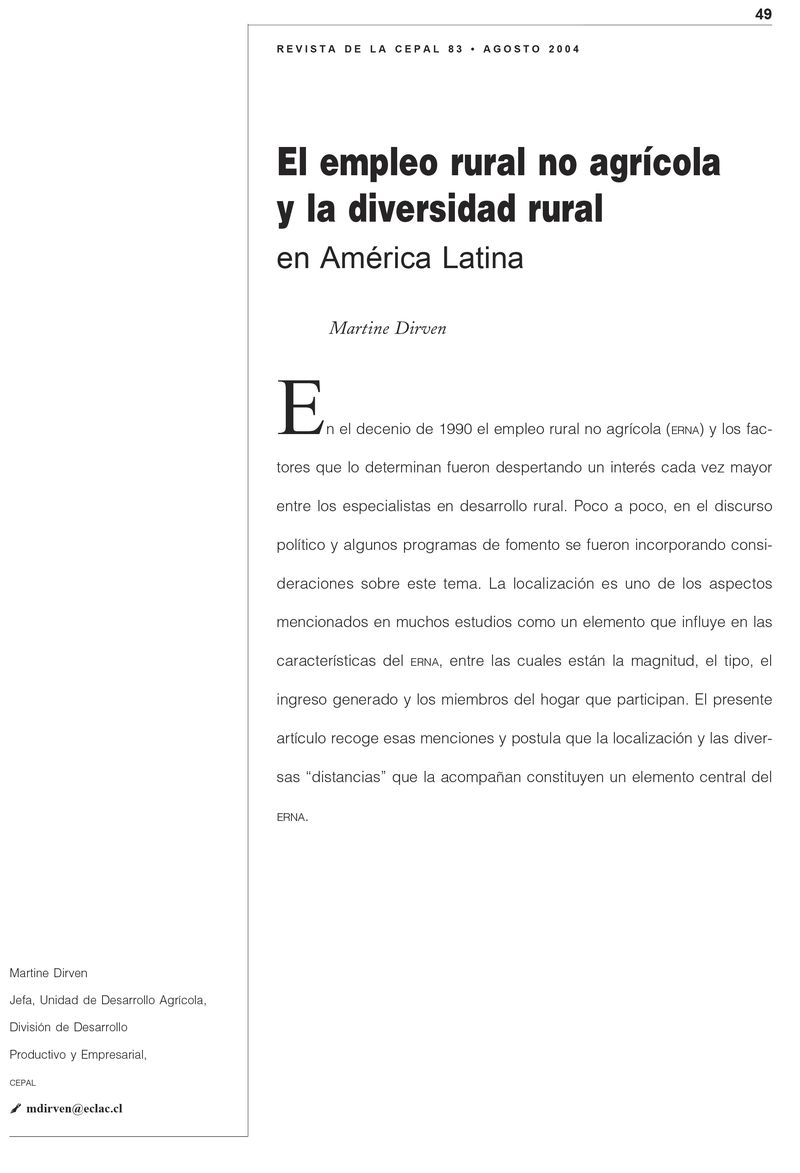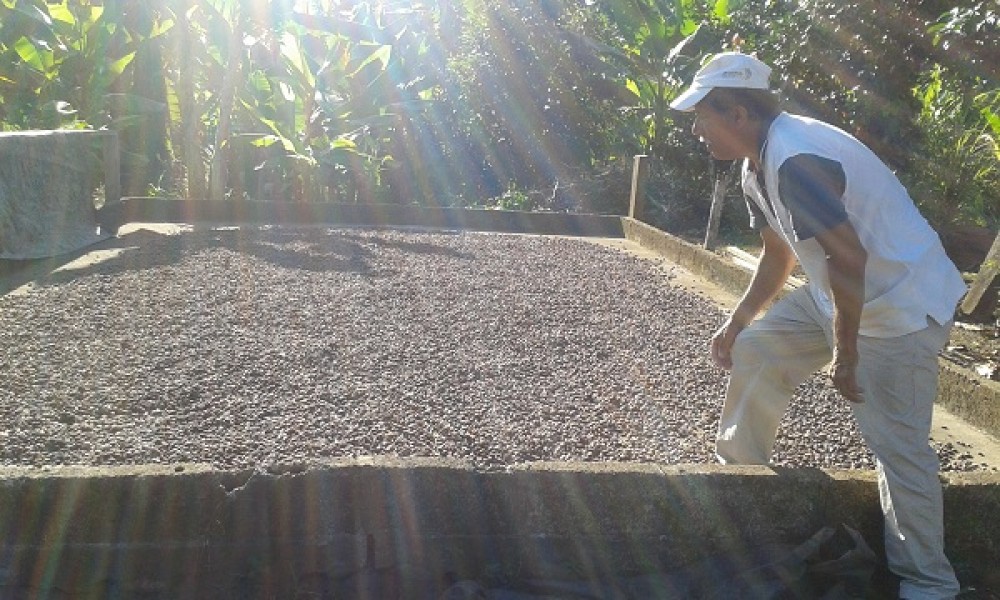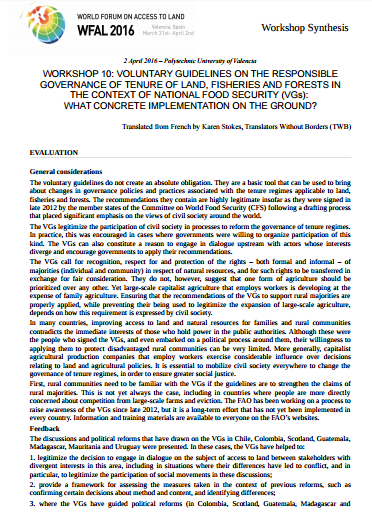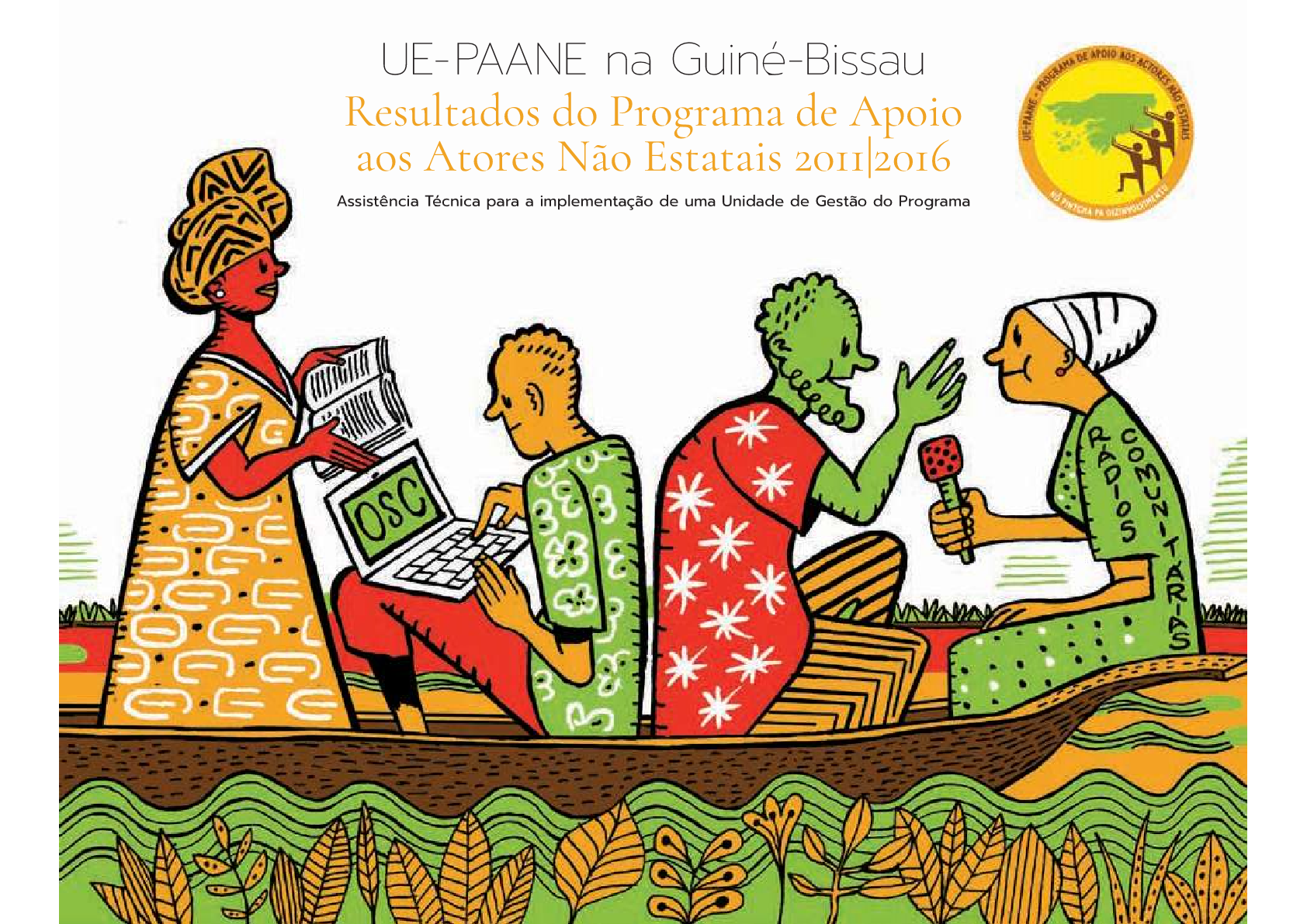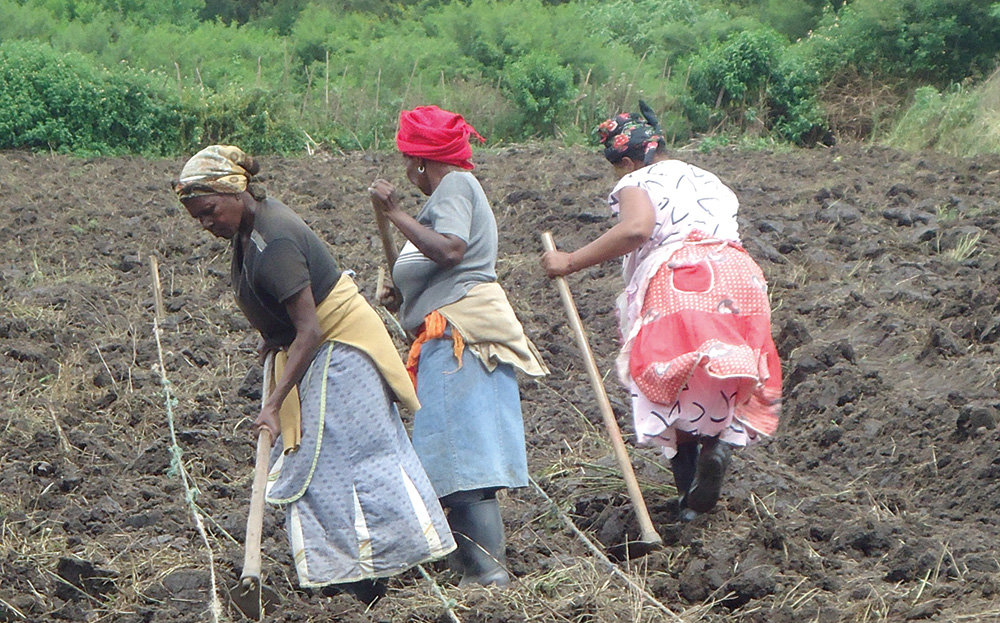El empleo rural no agrícola y la diversidad rural en América Latina
En el decenio de 1990 el empleo rural no agrícola (ERNA) y los fac-tores que lo determinan fueron despertando un interés cada vez mayor entre los especialistas en desarrollo rural. Poco a poco, en el discurso político y algunos programas de fomento se fueron incorporando consi-deraciones sobre este tema. La localización es uno de los aspectos mencionados en muchos estudios como un elemento que influye en las características del ERNA, entre las cuales están la magnitud, el tipo, el ingreso generado y los miembros del hogar que participan.

